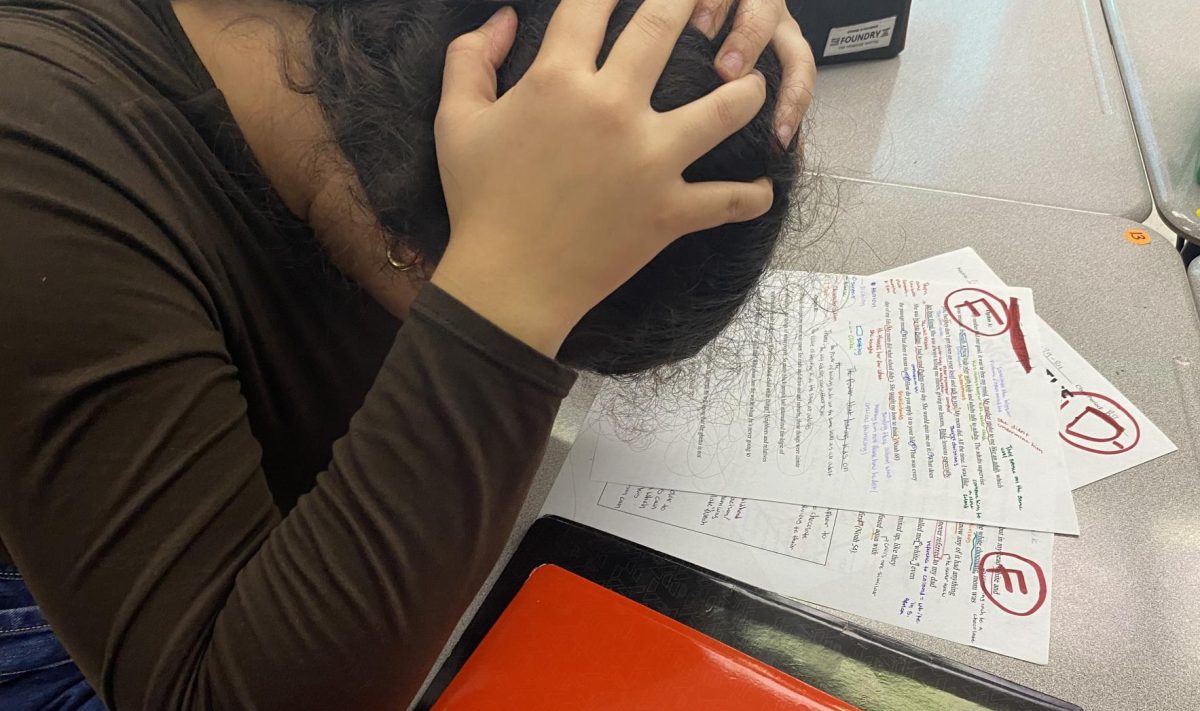When recalling childhood memories, what first comes to mind?
Many might remember the crunch of mulch beneath their feet, or the scorching heat of the sun on a hot summer day.
Jarret Cowgill, a first year teacher at AHS, is part of the millennial generation born in 1986. In his youth, Cowgill was very active and could often be found outdoors.
“I was always involved in sports, so I was always staying after school and doing something outside, even if it wasn’t in the summer,” Cowgill said.
The fondest of his memories came from spending time outside, something that’s rapidly becoming uncommon amongst the next generation of children.
“This is like the typical story, kids don’t go outside these days,” Cowgill said. “But I can remember every night in the summer, even during the school year, we’d be outside until it got dark.”
His generation saw the first gaming consoles. Devices such as the Nintendo64 and GameCube grew in popularity, with children around the world playing Mario Kart and The Legend of Zelda.
However, with the introduction of video games and technology into his life, there was a noticeable increase in the time he spent cooped up in his room.
“My outside time definitely went down after we got the N64. I remember my parents said I could only go on for a certain amount of time, but I definitely it out for sure,” Cowgill said.
As time goes on, we have only seen more advancements in technology and its accessibility. Nowadays, kids are seen with the newest iPhones as young as 8 years old. As a result, the childhood memories of the next generations will differ greatly compared to those previous.
Growing up, Sophomore Wendy Lopez-Ferrufino recalls her middle sister, who was born in 2011, spending time with her mother and playing with stuffed animals. This changed the moment she received an iPad.
Having an iPad is common for children today. Almost everyone has some sort of portable device, which begs the question: what effect does it have on them?
Lopez-Ferrufino feels that her sister’s usage of her iPad has had several negative effects on her development, especially with her behavioral issues. She noticed visible changes in her mood and demeanor.
“I think her anger issues started when she got Roblox on her iPad. She lashes out at anyone who talks to her when she’s playing but is normal when she’s not,” Lopez-Ferrufino said.
What adds to this problematic behavior is that her parents indirectly enable it by not setting clear consequences and letting the issue slide too easily.
“My parents say she’s addicted to her iPad yet don’t set any regulations with her,” Lopez-Ferrufino said. “She acts disrespectfully to our parents due to her anger issues. They might ground her for a week yet give in within a day when she asks for it back nicely.”
But what can parents do to prevent their children from excessive use of technology? Not much, it seems, because the solution lies in the problem itself. It’s too easy to give children devices to entertain themselves with.
“If you come home from work and you’re tired and want to do something yourself, it’s just easier to put the kid on the iPad,” Cowgill said. “That definitely is not the greatest thing, especially for young kids. It’s good to entertain, but I don’t know if it’s great for their development.”
Someone who can agree with this sentiment is Health & PE teacher Lizzie McManus. McManus was born in 1977, making her part of generation X, a time where technology was not as readily availible as it is today.
The earliest device she grew up with was the Atari, which was unlike any modern gaming console. It had a huge joystick and was inconvenient for her family to set up. They also only had one of them, so it was difficult to collaborate or maintain the level of addiction with screens present today.
Instead of staying on screens, McManus and her siblings took to spending physical time with each other.
“We would just stop at the bus stop, and all the kids would play,” McManus said. “We had to make up our own games, whether it’s played at somebody’s house, backyard, pool, swing set, whatever.”
The internet has given children access to everything, and only in rare cases is being able to access everything a good thing. A lot of information is not only untrue, but also downright unsafe for young kids to be exposed to.
“There’s some innocence in children that need to be protected as long as possible,” McManus said. “I’m all for kids growing up and exploring and creating and finding those strengths within rather than seeking outside approval. I think the phones take that away, and I don’t think it’s the right thing to do to have younger kids get them.”
Those who grow up raised by devices are missing the component of face to face conversations with their peers. They won’t learn valuable life lessons, and won’t get to experience doing things for themselves.
“Playing those games in my neighborhood, it totally made me the person I am today,” McManus said. “I was taught things that I could never learn from the phone, because I had to apply these things myself.”
There are still benefits of technology, though. They help children collaborate digitally when they can’t physically, and they make it incredibly easy to search for information.
“You can create so many things, but I do think there’s benefits to knowing how to build friends, resiliency, how to accomplish goals, all without the technology that’s thrown in our face,” McManus said.
Childhood memories aren’t the same anymore
March 20, 2024
Categories:
These are the signature gaming devices of each generation: the iPad, Xbox, and GameCube
Story continues below advertisement
0
More to Discover
About the Contributors

Jasmin Dinh, Co-In-Depth Editor
Junior Jasmin Dinh is on her second year as part of the A-Blast staff, returning to her position as one of the co-editors for the In-Depth pages. She enjoys spending time with her friends and participating in clubs like SEASA and VSA. She is also the Vice President of the class of 2026. She likes to travel and has visited many countries around the world, such as Jamaica, Norway, and China.

Rossy Soto, Co-In-Depth Editor
Junior Rossy Soto is in her second year working on the A-Blast as a co-In-Depth editor, and was previously one of the co-editors for the Arts Page. She is the founder and president of the Annandale photography club, she hopes to join other clubs. She enjoys designing graphics, photography, listening to music, thrifting and indulging in time with friends and family.









